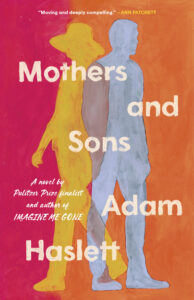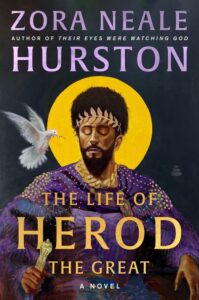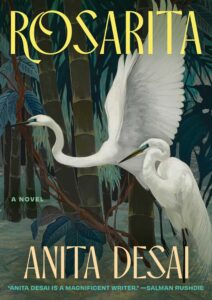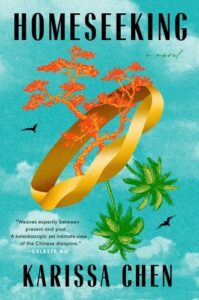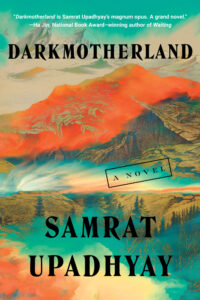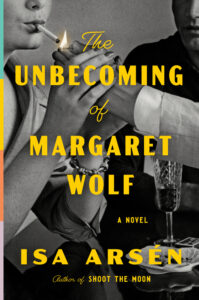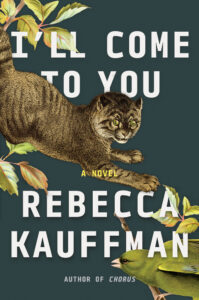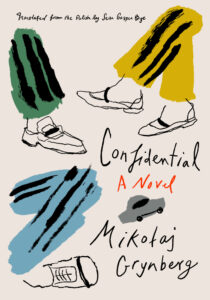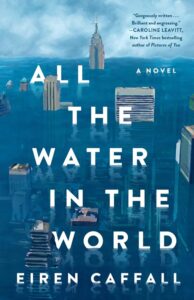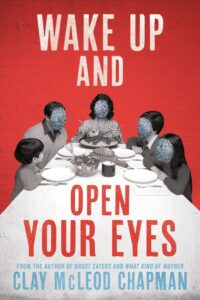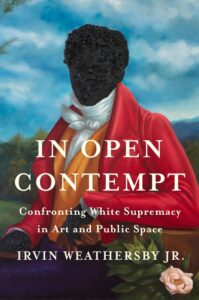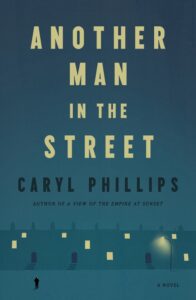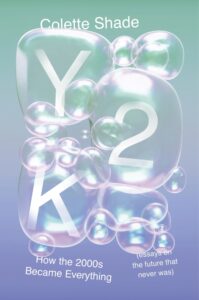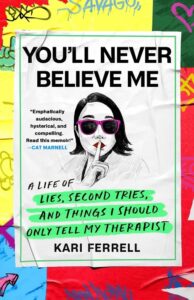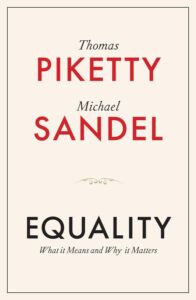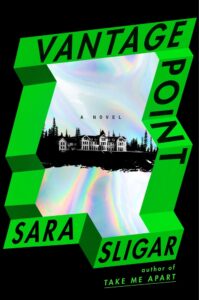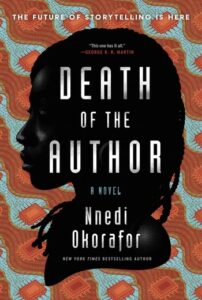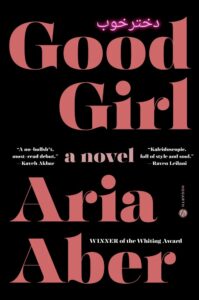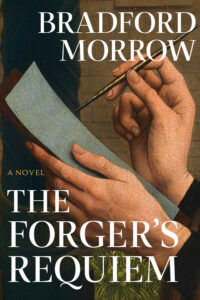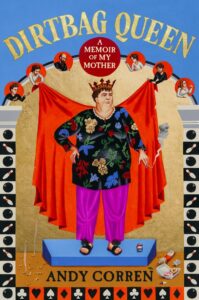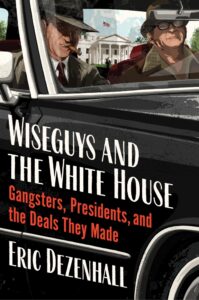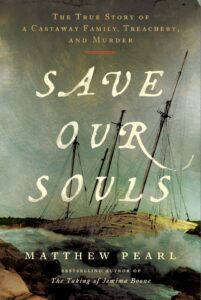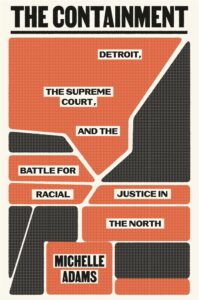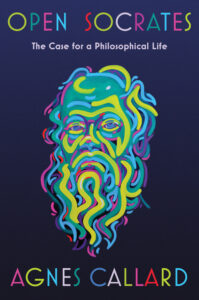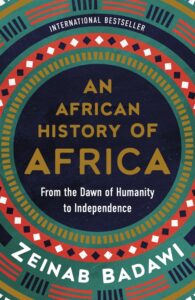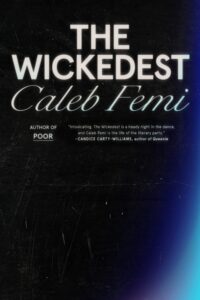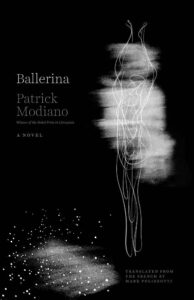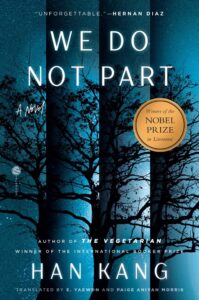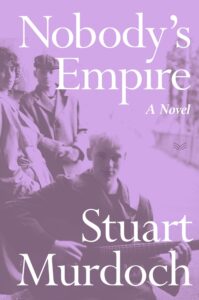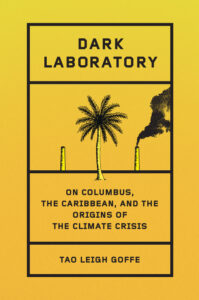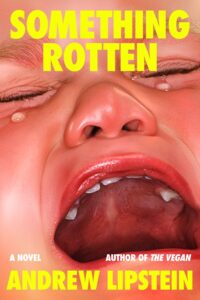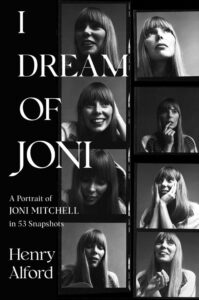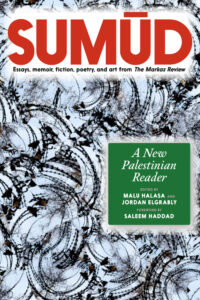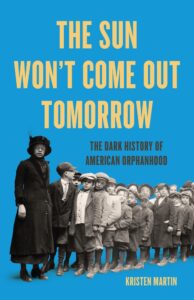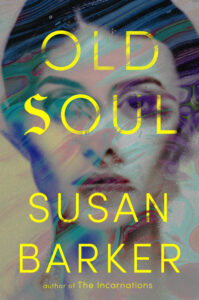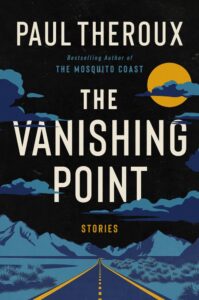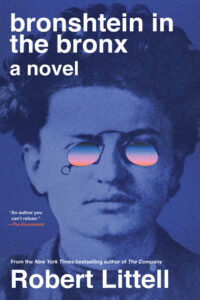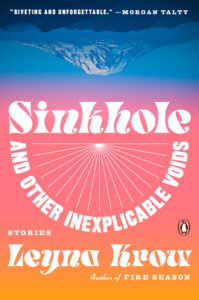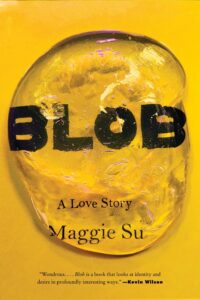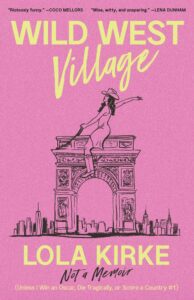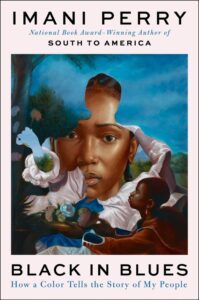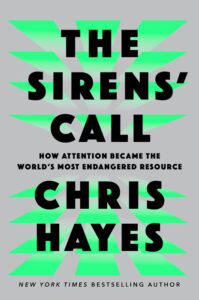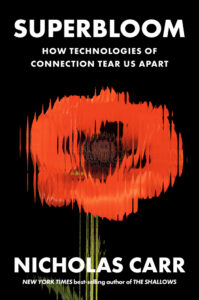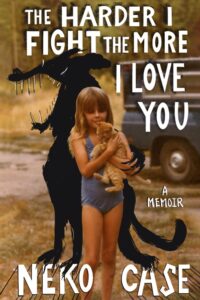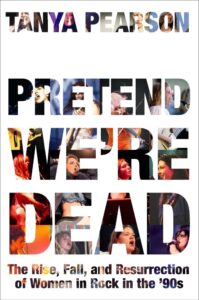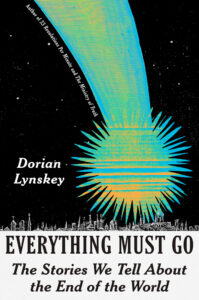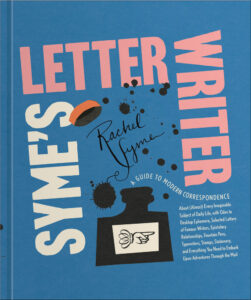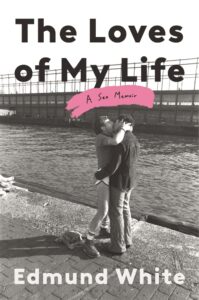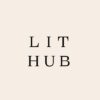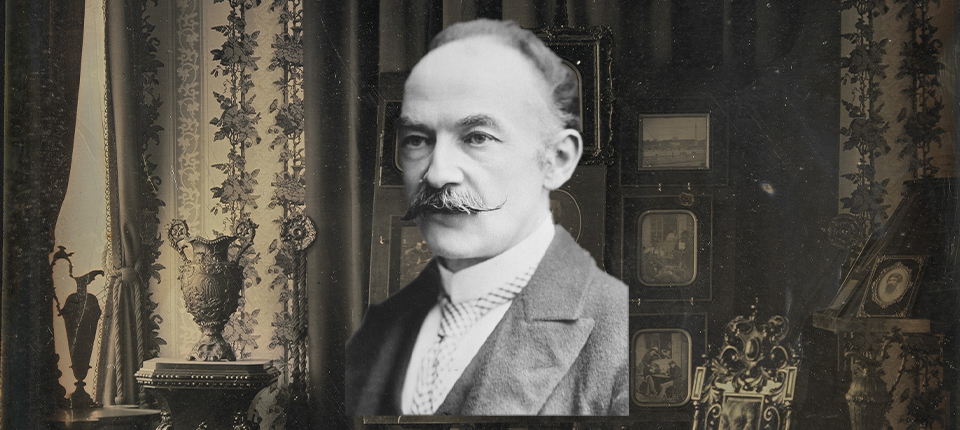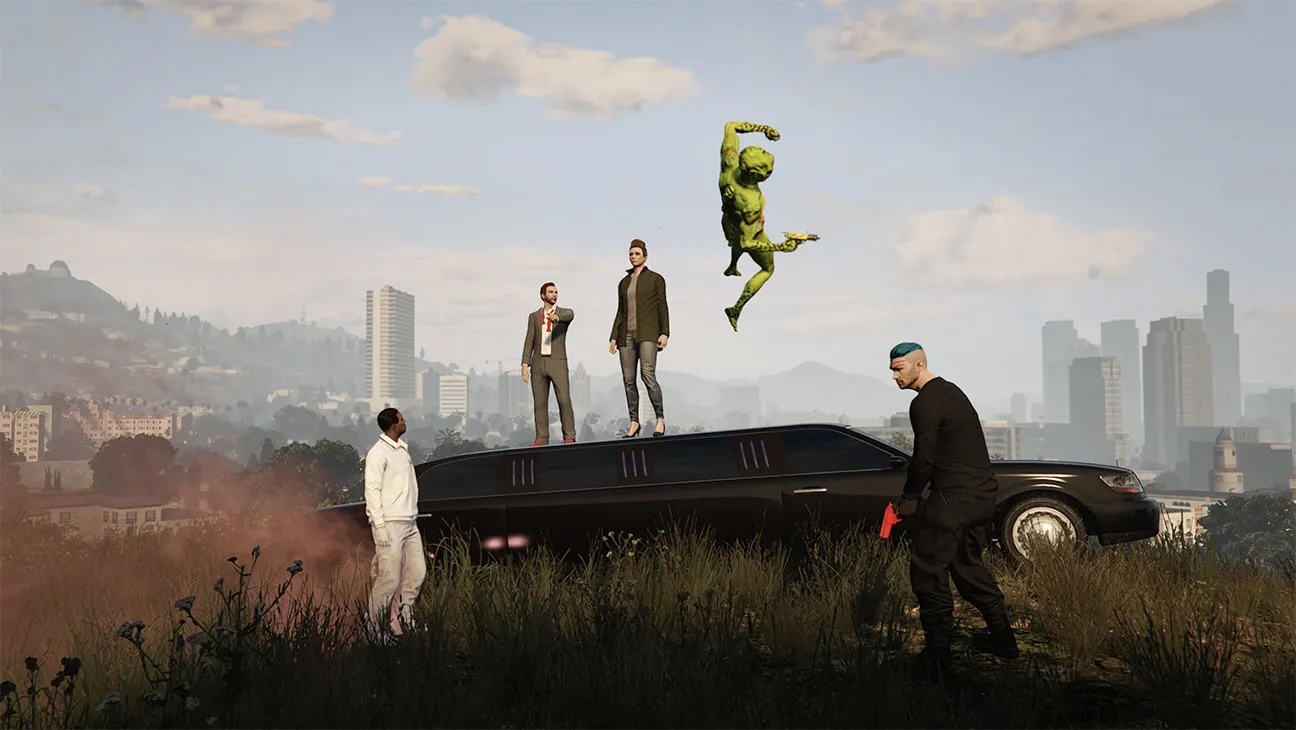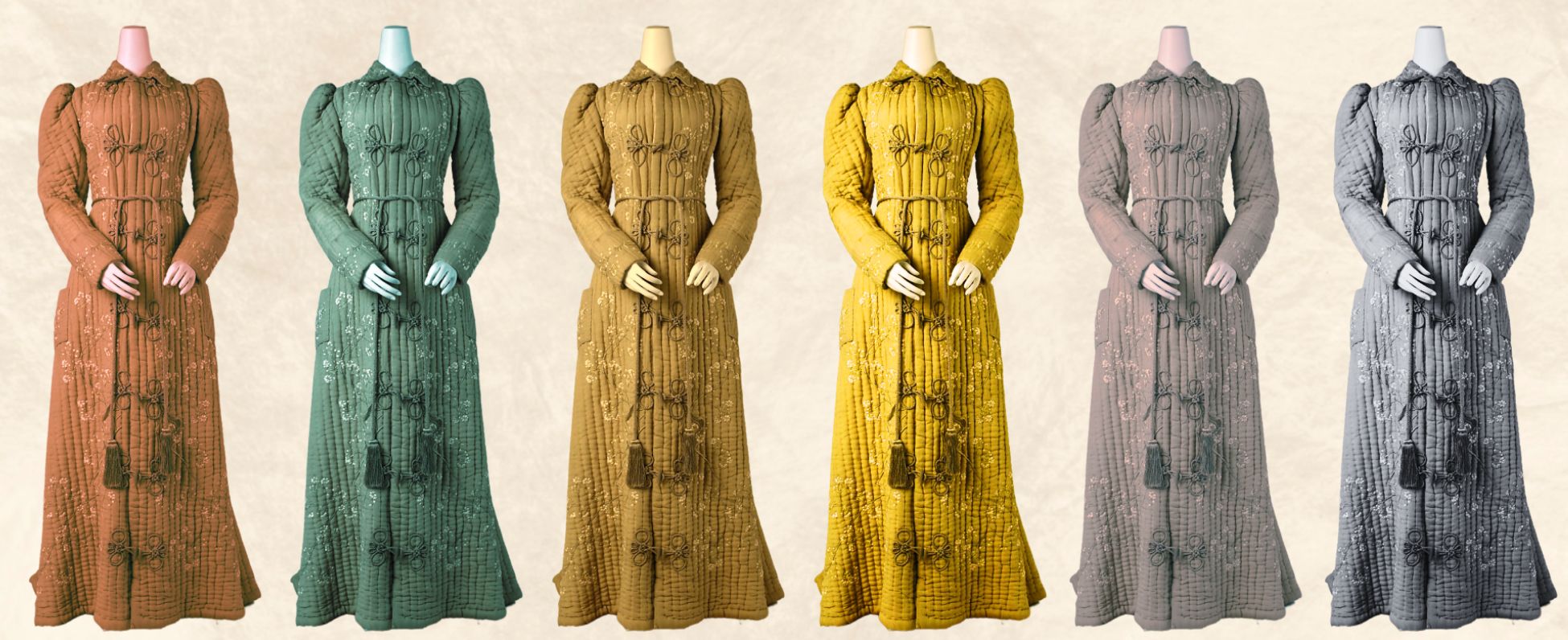Well, 2024 was fairly bad, and 2025 may in fact be worse. Regardless, we will be reading. Here are the books the Lit Hub staff is most excited to pick up in the (first half of the) year ahead.
Adam Haslett, Mothers and Sons
Little, Brown, January 7
Since Imagine Me Gone, I’ve loved Adam Haslett for his bone deep empathy and an unparalleled knack for spiking the saddest scenarios with humor. He’s the rare writer who’s as smart as he is soulful. In his newest novel, he applies those elegant listening skills to a fraught mother/son dynamic. Peter is an overburdened asylum lawyer, swimming against cold bureaucratic tides and trying to fight the good fight in a pre-Trump (administration) New York. His estranged mother Ann, a priest, left the family years ago for a woman in her congregation, and now runs a retreat upstate. And though mother and son are propelled by a similar idealism, they can’t seem to connect.
The admittedly slow action spins on the excavation of a repressed memory, but the prose works like a spell. This is a big, deep meditation on the ways we show care for both kin and community. –Brittany Allen, Staff Writer
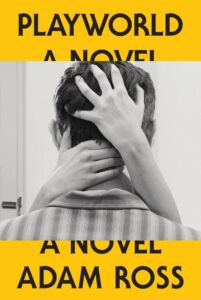
Adam Ross, Playworld
Knopf, January 7
It’s been a whole fifteen years since Ross’s debut novel Mr. Peanut, if you can believe it. He’s back with an equally ambitious, if somewhat less deadly, anti-bildungsroman about a child actor in 1980s New York City being continually let down by the adults in his orbit—an epic family-cum-social novel bursting with detail so specific you might, at times, find that you believe in it just a little bit more than what you see out your window. –Emily Temple, Managing Editor
Zora Neale Hurston, The Life of Herod the Great
Amistad, January 7
When Zora Neale Hurston died, she was working on a sequel to her book about Moses and now, some 65 years later, we get to see what that might have been. It wasn’t lost, per se—the manuscript has been available to scholars at the University of Florida since Hurston’s papers went there after her death—but it was unfinished when she died, and being released in that state with commentary from Deborah Plant and ephemera about Hurston’s research on the novel. What a joy to get one more book from one of the greatest American writers! –Drew Broussard, Podcasts Editor
Anita Desai, Rosarita
Scribner, January 7
From three-time Booker finalist Anita Desai comes a new novel about a young Indian woman who—after a strange encounter with an old woman in a park in Mexico—is confronted with what may or may not be an entirely new history of her own mother’s life. This is at the top of my reading list—can’t go wrong betting on Desai. –ET
Karissa Chen, Homeseeking
Putnam, January 7
Karissa Chen’s sweeping-but-intimate debut novel is the tale of star-crossed lovers separated by decades and continents, told against the backdrop of the major events in 20th century Chinese history. Beginning in pre-war Shanghai and ending in twenty-first century Los Angeles, Homeseeking has been called “epic, assured, and beautifully drawn” by Lisa Ko, and a “kaleidoscopic yet intimate view of the Chinese diaspora” by Celeste Ng. –Dan Sheehan, Book Marks Editor-in-Chief
Samrat Upadhyay, Darkmotherland
Soho Press, January 7
Listen. I love an ecological dystopia. This one has political intrigue, family drama, and it’s also grounded firmly in reality considering the real life rise of fascism and climate disaster. What more you could want? –Oliver Scialdone, Community Editor
Isa Arsen, The Unbecoming of Margaret Wolf
Putnam, January 7
Arsén’s sophomore effort is equal parts sultry and cultured, featuring two Shakespearian actors in a unusual but emotionally fulfilling marriage of convenience who find themselves in a sticky situation. They’ve been hired for a rather strange gig: an eccentric criminal has built a replica globe in the middle of the desert, and he’s ready to bring Shakespeare to life for his audience of one. At first, Margaret is merely there to tag along while her husband enjoys a leading role in Titus Andronicus; she’s recovering from a mental breakdown from the last time she starred in the Scottish Play. When she bonds with their benefactor, however, she finds herself reluctantly agreeing to give the lady one more try. When her marriage is threatened, she turns to her character to find the strength to do what needs to be done, in a perfectly-plotted denouement. –Molly Odintz, CrimeReads Managing Editor
Rebecca Kauffman, I’ll Come to You
Counterpoint, January 7
While I spent most of 1995 crying and watching Barney & Friends, some people were having family drama, and lots of it. I’ll Come to You is obviously a work of fiction, but so much attention is given to its characters—their feelings, flaws, their humanity—that they might as well be real. –OS
Mikołaj Grynberg, tr. Sean Gasper Bye, Confidential
The New Press, January 7
Spanning the Holocaust to the present, Confidential follows three generations of a Jewish family in Poland, addressing themes of togetherness and trauma. It’s also, like, funny! –OS
Eiren Caffall, All the Water in the World
St. Martin’s, January 7
Move over Night at the Museum. There’s another piece of Natural History Museum fiction in town. Instead, All the Water in the World is an on-the-edge-of-your-seat work of cli-fi about what happens when rising sea levels destroy Manhattan, forcing a 13-year-old and her family to escape in a canoe from a museum exhibit. –OS
Clay McLeod Chapman, Wake Up and Open Your Eyes
Quirk, January 7
Clay McLeod Chapman’s upcoming horror novel is the perfect post-Election read: namely, in that it features demonic forces taking possession of their viewers through the TV network Fax News (Just the Fax!) The ways in which the story evolves take the plot in directions that make all of us understand our complicity in the toxicity of today. –MO
Irvin Weathersby Jr., In Open Contempt: Confronting White Supremacy in Art and Public Space
Viking, January 7
If you’re even a little adjacent to the art, design, and architecture spaces, understanding the ways in which white supremacy informs these fields is essential, and In Open Contempt guides its readers to do just that. –OS
Caryl Phillips, Another Man in the Street
FSG, January 7
Caryl Phillips first novel in seven years, Another Man in the Street is an event to be heralded. Set in London in the 60s, in the midst of a changing urban landscape, an immigrant from the Caribbean named Victor arrives with big, ballooning dreams of finding his fortune and name in the “mother country.” This is not the easy happy ending that Victor discovers: instead there is hardship, and scrabbling, and lowering oneself beyond one’s imaginings. He also finds connection and companionship in others like him who are not privileged, those who also have secrets they’re hiding, have hopes they’re harboring. Meditative and spare, hard and tender, A Man in the Street is worth the wait. –Julia Hass, Book Marks Assistant Editor
Colette Shade, Y2K: How the 2000s Became Everything (Essays on the Future That Never Was)
Dey Street, January 7
I don’t want to make any of you feel old, but the 2000s are back in a big way. This collection, by the prolific essayist and critic Colette Shade, zooms in on iconic objects from the aughts, including TRL, body glitter, and Smash Mouth’s “All Star.” The essays are funny and sharp, and will surely jog your memory, challenge your preconceived notions, and prompt questions about what 2000s nostalgia points to—what does 2025 look like reflected through an AIM chat window? –James Folta, Staff Writer
Kari Ferrell, You’ll Never Believe Me: A Life of Lies, Second Tries, and Things I Should Only Tell My Therapist
St. Martin’s, January 7
It’s impossible to overstate the hold that Kari Farrell, AKA “the hipster grifter,” had on New York media in 2009. As a bored office worker, I was an avid consumer of Gawker’s tales of the Farrell saga, so I can’t wait to read the story of bad checks, weird come-ons, internet infamy, and—presumably—redemption, directly from the source. –Jessie Gaynor, Senior Editor
Thomas Piketty and Michael Sandel, Equality
Polity, January 13
Two of our most important contemporary thinkers, the economist Thomas Piketty and the political philosopher Michael Sandel, wrestle with one of the defining issues of our time: equality. The book approaches the topic from a number of angles: what should our priorities be? What does the end goal look like? And how is any of this possible in an era of revanchist nationalism? This conversation-in-book-form promises to be inspiring for anyone hoping for a more just future. –JF
Sara Sligar, Vantage Point
MCD, January 14
I highly enjoyed Sligar’s twisty debut, Take Me Apart, and have been extremely excited for her follow-up, a tale of the younger generation of an old-money New England family who must reckon with a supposed curse placed on their family tree. But the fascinating thing (and unsurprising from Sligar, who knits together themes of “the modern” and “legacy” skillfully) is that the curse, wrought this round on millennials, takes the form of digital hauntings! –OR
Nnedi Okorafor, Death of the Author
William Morrow, January 14
This latest from a master of speculative fiction wins my award for most exciting jacket copy. When Zelu, a disenchanted literary novelist, tries her hand at a futuristic space opera just for personal giggles, she winds up risking…the actual universe? I’m in, no further questions. This meal of metafictional hijinks invites readers to imagine the ultimate cost of losing control of one’s narrative. –BA
Aria Aber, Good Girl
Hogarth, January 14
Aria Aber is a poet who veers into that specifically ambiguous territory of “famous poet”, but even if you haven’t yet heard of her, you’re going to know her from her fiction debut, Good Girl. Set in Berlin post 9/11, a young woman grapples with her hidden Afghan heritage and the weight of her familial and cultural expectations, all while mourning her mother, falling in love with a darkly magnetic man named Marlowe, attending clubs, doing drugs, and reckoning with the dissonance of her life and future. I love reading a poet’s fiction: every line is intentional and purposeful, gleaming with sharp, incisive meaning, while taking you on the journey of their narrator’s life, and this one is no different. One gets to have it all in such a case: at the line level, the plot level, and the novel as a whole, it’s a marvel. –JH
Bradford Morrow, The Forger’s Requiem
Atlantic Monthly Press, January 14
The newest installment is this sophisticated mystery series continues the intrigues of rival forgers, this time with an emphasis on a daughter’s revenge and an intricate puzzle built from forged Mary Shelley letters. –Dwyer Murphy, CrimeReads Editor-in-Chief
Andy Corren, Dirtbag Queen
Grand Central, January 14
Andy Corren’s memoir renders an unforgettable image of his mother (following the viral obituary he wrote for her in 2021), and it’s teeming with humor and poignancy. –OS
Eric Dezenhall, Wiseguys and the White House: Gangsters, Presidents, and the Deals They Made
Harper Books, January 14
Organized crime surrounding the Presidency is nothing new, and Dezenhall lays out a rollicking, if disturbing history of various mobs working in and around the nation’s highest office. –DM
Matthew Pearl, Save Our Souls: The True Story of a Castaway Family, Treachery, and Murder
Harper Books, January 14
From the editor of Truly*Adventurous, Save Our Souls comes a staggering account of a family castaway on a deserted island and confronted by a mysterious man who first appears to be their salvation, before a more difficult truth emerges. Pearl works in the vein of David Grann and consistently produces first-rate nonfiction. –DM
Michelle Adams, The Containment: Detroit, the Supreme Court, and the Battle for Racial Justice in the North
FSG, January 14
This is a history book well matched for the moment; the legal scholar Michelle Adams explains how a group of dedicated and passionate local activists fought to integrate Detroit’s public schools and won a crucial, landmark legal victory. Unfortunately, the moment of racial justice was short-lived: soon—and tell if this sounds familiar—the Supreme Court reversed the decision. This book is essential for anyone who wants to understand how we got here, and who never gave up resisting and fighting for a better world. –JF
Agnes Callard, Open Socrates: The Case for a Philosophical Life
Norton, January 14
I admit that I became fascinated by the philosopher Agnes Callard after reading Rachel Aviv’s profile of her in The New Yorker in 2023, not least because it reveals her as a singular, unyielding mind—the rare sort of person who follows their own rules. In her book on Socrates, she applies his thinking to everything from self-discovery and control to the centrality of dialogue with others to love, death, and politics. Well, I don’t know about you, but I’m ready to live a philosophical life in 2025. What else is there anymore? –ET
Zeinab Badawi, An African History of Africa: From the Dawn of Humanity to Independence
Mariner, January 14
I plan to read Zeinab Badawi’s brilliant survey of African history in slow pieces, absorbing the information within as reverently as possible, for Badawi draws on sources and features perspectives that have long been denied their rightful place in the historical journey. It is an honor to read and learn from her work, and to feel the extent of her understanding. And it should be a duty for any interested in history to read this fascinating text. –MO
Caleb Femi, The Wickedest
MCD, January 21
I’m a sucker for “durational performance” and although Femi’s latest is a thin little volume, it manages to hold an entire night inside its pages. With words, photos, and more, it takes you inside an infamous long-running house party in South London and shows you the lives of the partygoers, the ways that one can fall into the warm embrace of sound, and the joys of language all at once. –DB
Patrick Modiano, tr. Mark Polizzotti, Ballerina
Yale University Press, January 21
Yale University Press brings American readers another gift this year: a new translation of the Nobel-prize winning Modiano’s rich, evocative Ballerina, set in the world of dance (and oblique existential mysteries) in 1960s Paris. –DM
Han Kang, tr. E. Yaewon and Paige Aniyah Morris, We Do Not Part
Hogarth, January 21
It may be the new year, but it’s still midwinter, the perfect time to disappear into this snowy new novel from our newly minted Nobel Laureate: a dream-narrative of history, remembrance, and friendship rendered in her complex, lyrical prose. –ET
Stuart Murdoch, Nobody’s Empire
HarperVia, January 21
The debut novel from Belle and Sebastian frontman Stuart Murdoch concerns a young man named, well, Stephen, living in Glasgow, suffering from chronic fatigue syndrome, wishing to be a musician. If you are a fan of Murdoch’s old sad-bastard music, you know about some of this already, which is likely only to make it more pleasurable. I personally will be paying tribute to my college years by reading this book whilst wearing massive amounts of eyeliner, drinking cheap whiskey, and being cold as if it’s earning me something. –ET
Tao Leigh Goffe, Dark Laboratory: On Columbus, the Caribbean, and the Origins of the Climate Crisis
Doubleday, January 21
This one comes garlanded in praise from historian heavyweights like Imani Perry, Ada Ferrer, and Jack E. Davis, and sounds absolutely fascinating. Billed as an investigation of the Caribbean “as both an idyll in the American imagination and a dark laboratory of Western experimentation, revealing secrets to racial and environmental progress that impact how we live today,” Goffe—an award-winning theorist and interdisciplinary artist—dismantles the imperialist thinking that clouds our understanding of the region and “situates the origins of racism and climate catastrophe within a colonial context.” –DS
Ida Vitale, tr. Sean Manning, Lexicon of Affinities
Charco Press, January 21
A vibrant and playful memoir-in-dictionary-form, from the hundred-year-old Vitale. It’s a joyous celebration of a life well lived, with entries that range from the simple to the titanic (and rarely how you’d expect them to shake out)—and a robust introduction for English-speaking readers to a writer whose work is only starting to make its way into translation. Plus, Charco has put it in a beautiful design (as they always do). –DB
Andrew Lipstein, Something Rotten
FSG, January 21
I’ve been a fan of Lipstein since his debut, Last Resort—he can always be counted on to be sharp and sneaky, somehow both critical and warm, and often ridiculously funny while skewering home a hard truth or two, and therefore he is the first person I would trust to write a book like this one: a satire of masculinity and modern life in which a disgraced reporter decamps from New York to Copenhagen with his family, and gets sucked into—well, it sounds bad. First book on my new year’s reading list! –ET
Henry Alford, I Dream of Joni: A Portrait of Joni Mitchell in 53 Snapshots
Gallery Books, January 21
Henry Alford’s book on Joni Mitchell examines her through a fresh lens, with each of the 53 essays taking on a different topic in Mitchell’s life and work. Fans will love poring over the pages. –OS
Malu Halasa & Jordan Elgrably, eds., Sumud: A New Palestinian Reader
Seven Stories Press, January 21
The fiction, poetry, and essays in this anthology all showcase the artistry and power of Palestinian resistance, and while the book includes work from the 20th century, its focus on more contemporary writing makes it feel particularly urgent. –OS
Kristen Martin, The Sun Won’t Come Out Tomorrow: The Dark History of American Orphanhood
Basic Books, January 21
In this book, a mix of reportage, cultural criticism, and memoir, Martin unpicks our cultural myth of the orphan, critiquing the popular narratives and unveiling the historical truth of life for American orphans from the 1800s to the present. They were, you may not be shocked to learn, mostly not adopted by millionaires or rescued by a kind grandfather. Sure to be fascinating. –ET
Susan Barker, Old Soul
Putnam, January 28
Susan Barker’s upcoming literary horror novel contains some of my favorite things: ghosts, gothic vibes, and general weird stuff. This story follows two strangers connected by the mysterious deaths of their loved ones, as well as the appearance of a strange woman. Old Soul is a haunting story of grief and ghosts and the ways the past stays with us. –McKayla Coyle, Publishing Coordinator
Paul Theroux, The Vanishing Point
Mariner, January 28
A new collection of short stories from Paul Theroux is tied together by life’s “vanishing points,” where seemingly disparate perspectives converge and nothing further can be seen. It’s a fittingly ambitious theme for a legendary author. –DM
Robert Littell, Bronshtein in the Bronx
Soho Press, January 28
For those who enjoyed Yuri Hererra’s account of Mexican hero Benito Juarez’s time in New Orleans, here’s another tale of revolutionary exile: Trotsky in NYC! Robert Little is the perfect person to take on this daunting task without sacrificing story, and I’m psyched to dive into Leon’s days in the city I once called home. –MO
Leyna Krow, Sinkhole, and Other Inexplicable Voids: Stories
Penguin Books, January 28
Daughters, mothers, sisters, friends, any combination, and any sort of woman, are attempting to do right in this collection by Leyna Krow. Existing at that sweet and terrifying spot at the crux of how to love each other, and how to love the world that is dying around us, is where this collection sits. Sinkhole grapples with the changing nature of the land we live upon, along with the everlasting urge to be in relation with one another, treating that desire as imperative and necessary even in the face of our planet’s decay. Each story is satisfying in its own right and intrinsic to the collection as a whole: at times speculative, at times starkly realistic, the world heats and floods cascade, and still the beating hearts of humanity continue to hope and fear and dream and love and love and love. –JH
Maggie Su, Blob: A Love Story
Harper Books, January 28
I am absolutely frothing at the mouth waiting for this book to come out. Described as a “modern Mrs. Caliban” (ifykyk), Blob follows a young woman who discovers a sentient blob and tries to turn it into her ideal boyfriend. Now this is art! This is literature! More books about women dating weird objects they found in the street, please. Blob hive rise up. –MC
Lola Kirke, Wild West Village
Simon & Schuster, January 28
One just can’t help but be drawn in by the Kirke family. Each sister is specific and unique, yet all make up a gorgeous, talented, magnetically cool coven. Lola is an actress who’s starred in various indie films such as Mistress America, and has now written this not-quite-a-memoir (it might be a memoir) discussing her riotous upbringing, her bohemian parents and the Kirke girls’ unusual and poignant sisterly relationship. It peels back the curtain on a striking family: a warts and all reveal of how these women have grown from their wild days to their adult beings, and shares some lessons learned along the way. –JH
Imani Perry, Black in Blues: How a Color Tells the Story of My People
Ecco, January 28
I plan to read everything Imani Perry writes. I’ve admired her knack for braiding theory, history, and intimate personal inquiry ever since 2018’s Vexy Thing: On Gender and LIberation. In a new book, she considers color in a world that predates racial imagination. This lyrical look at the indigo trade gets at a hue’s commercial and spiritual significance. –BA
Chris Hayes, The Sirens’ Call
Penguin Press, January 28
Do you, too, feel like you can’t break the addiction of scrolling on your phone? Of feeling the phantom vibration of a text you didn’t get, but you have to check just in case? Are you also totally fucking frustrated with all of the fake ads, the weird algorithms, the sense that things are messier and worse than they used to be? Chris Hayes has the book for you: it doesn’t necessarily make you any happier, but it will help explain just how our attention has been turned into a resource to be extracted by the barons of late capitalism. –DB
Nicholas Carr, Superbloom: How Technologies of Connection Tear Us Apart
Norton, January 28
This book is so timely. I say this as an extremely online person who has a deep love for the culture and history of the internet: maybe some of this was a bad idea. –OS
Neko Case, The Harder I Fight the More I Love You: A Memoir
Grand Central, January 28
If you were a weird-sad girl listening to Furnace Room Lullaby in your dorm room, then you’re also excited to read Case’s “heartbreaking and funny” memoir, charting her rise from a childhood as an invisible girl “raised by two dogs and a space heater” to a beloved singer-songwriter and artist. –Emily Firetog, Deputy Editor
Tanya Pearson, Pretend We’re Dead: The Rise, Fall, and Resurrection of Women in Rock in the ’90s
Hachette, January 28
The ’90s explosion of politically incisive, socially observant, and wildly talented women in rock and roll seemed to dry up by the 2000s, and this new book sets out to answer why. Written by Tanya Pearson, the founder of the Women of Rock Oral History Project, Pretend We’re Dead is built around interviews with Liz Phair, Shirley Manson, Kristin Hersh, as well as members of Hole, Veruca Salt, Babes in Toyland, and many more. A must-read for music fans and anyone who is still (correctly) angry at the Bush Administration. –JF
Dorian Lynskey, Everything Must Go: The Stories We Tell About the End of the World
Pantheon, January 28
Like any normal person paying attention to the rather apocalyptic nature of our day to day life, I think about the end of the world fairly regularly. So Lynskey’s comprehensive guide to everything that could end the world is less a depressing read than an illuminating and entertaining romp into the literature, art, music, and film that asks the question of how it will end. From comets to pandemics, world wars, the Cuban Missile Crisis, Y2K, and the climate emergency, Lynskey looks at what drives our obsession with the end of the world—even if nothing can be done about it. –EF
Rachel Syme, Syme’s Letter Writer: A Guide to Modern Correspondence About (Almost) Every Imaginable Subject of Daily Life, with Odes to Desktop Ephemera and Selected Letters of Famous Writers
Clarkson Potter, January 28
Not to be a creep, but: Rachel Syme is one of my favorite social media follows. She’s a lifestyle maven who always seems to be enjoying herself, and I regularly appreciate her book, film, and perfume(!) recommendations. (Not to mention those elegant New Yorker profiles.) A longtime zealot for the handwritten letter, Syme’s now bringing us a coffee table book about “modern correspondence” that’s one part guide, one part ode to a lost art. Featuring sumptuous illustrations by Joana Avilez, I can’t wait to curl up with this bauble on a rainy day. –BA
Edmund White, The Loves of My Life: A Sex Memoir
Bloomsbury, January 28
White is looking back on decades worth of sex, interrogating the encounters that defined moments in his life and came to inspire so many of his great works. Here’s the kind of witty, insightful memoir that befits a literary legacy like White’s. –DM

 By Literary Hub | Created at 2025-01-07 10:01:54 | Updated at 2025-01-12 01:47:10
4 days ago
By Literary Hub | Created at 2025-01-07 10:01:54 | Updated at 2025-01-12 01:47:10
4 days ago
